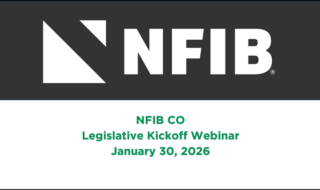July 29, 2024
End of Session Legislative Action
The Massachusetts 2023-24 legislative session is slated to end on August 1, 2024. There are still several bills pending in conference committees, where smaller groups of lawmakers gather to iron out differences between House and Senate proposals. Here is the latest information at the time this article was written.
Energy:
Lawmakers are working on bills regarding state energy policy and the environment. Why is this important to small businesses? Part of the Senate proposal provides the Department of Public Utilities with increased authority to deny natural gas hookups for businesses and residences. This would limit a small business’ energy choices. The Senate bill also has an overreliance on heat pumps and electrification that could result in higher energy costs. Additionally, the Senate added a provision to expand the state bottle redemption law to include more types of bottles while increasing the deposit from 5 cents to 10 cents.
Economic Development:
In a bill meant to encourage economic growth and job creation, the House and Senate both buckled to pressure from labor unions and included provisions that allows municipalities to require project labor agreements to bid on jobs. This precludes many non-union small businesses from bidding on projects paid for by their tax dollars. Massachusetts would join a handful of states like California, New York, Illinois, and New Jersey that allow for PLAs that often drive up the expense of projects.
Salary Ranges on Job Postings:
The House and Senate both passed a bill mandating businesses with 25 or more workers post good faith salary ranges on all job listings. The bill also demands employers provide salary ranges for promotions and for any employee that asks for a range on their current position. If an employer fails to comply, the Attorney General may take action and levy fines. It also includes a retaliation clause, prohibiting employers from acting against workers who request a pay range. Often this type of language leads to frivolous lawsuits against employers.
For businesses with 100 or more workers, they must also provide the state with salary data to track whether Massachusetts is closing perceived pay gaps. NFIB opposed this legislation. As of writing this article, the bill awaits a signature from Governor Healey.
NFIB will provide a future legislative update following the end of session once all bills are finalized.
NFIB is a member-driven organization advocating on behalf of small and independent businesses nationwide.
Related Articles














